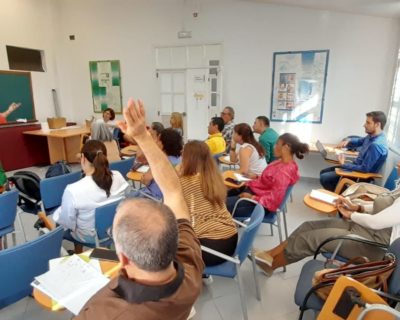Based on the information provided by PAHO Colombia, the Ministry of Health and Social Protection of Colombia (MSPS) is implementing a process of structural reform of its health system aimed at establishing Primary Health Care as the basis of the system, organization of Integrated and Comprehensive Networks of territorially based health care and services and the composition and professional staff capable of responding to the needs of its diverse population. To this end, it promotes a profound change in the flows of financial allocation, incentives and forms of payment, all these elements that make it possible to move towards equity, guarantee universal access and establish governance that encourages local governments to take active responsibility for the well-being of their populations.
During the last 30 years in Colombia, the Colombian health system has been based on an insurance model, with a basis of structured pluralism that has resulted in a model of important pooling of funds, a nominal coverage that reaches 99% of the population. and at the same time a concentration of the offer of services with emphasis on the specialized level in urban areas and with a higher socioeconomic level with a great imbalance in rural and vulnerable populations. The great challenge for the current administration is the accelerated development of policies, programs and processes that guarantee access to health, overcoming existing gaps and in the most efficient and timely manner. A challenge that requires innovation, incorporation of measures proven to be effective, substantive dialogues on options and scenarios and exchange with experiences, expertise and practices that can offer contributions to this ambitious process.
In this context, it is proposed to carry out a technical visit to exchange experiences and good practices in Spain organized by the Andalusian School of Public Health of Andalusia, a WHO Collaborating Center in the field of Primary Health Care.
Describe and establish a reflective dialogue on the main elements that characterize the Andalusian Public Health System (SSPA), from its construction process, governance structures, management instruments and policies to strengthen PHC as the basis of the system, so that, through the contrast and critical reflection of the different experiences, strategies and practices, the participants can obtain useful elements for the development of their responsibilities.
A delegation of 14 participants in the Program is planned, with the following profiles:
It is expected to promote the active exchange of experiences, theories, information, knowledge and practices of planning and management of Health systems, on the basis that the main protagonists of this process are the participants themselves, as active subjects and in horizontal interaction with the professionals from the EASP and with high-ranking managers and professionals from the SSPA, confronting their own experiences and knowledge with other scenarios, particularly with the context of health reform in Colombia.
Throughout the development of the Program, active exchange between participants will be promoted, through a combination of:
